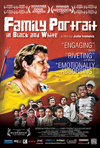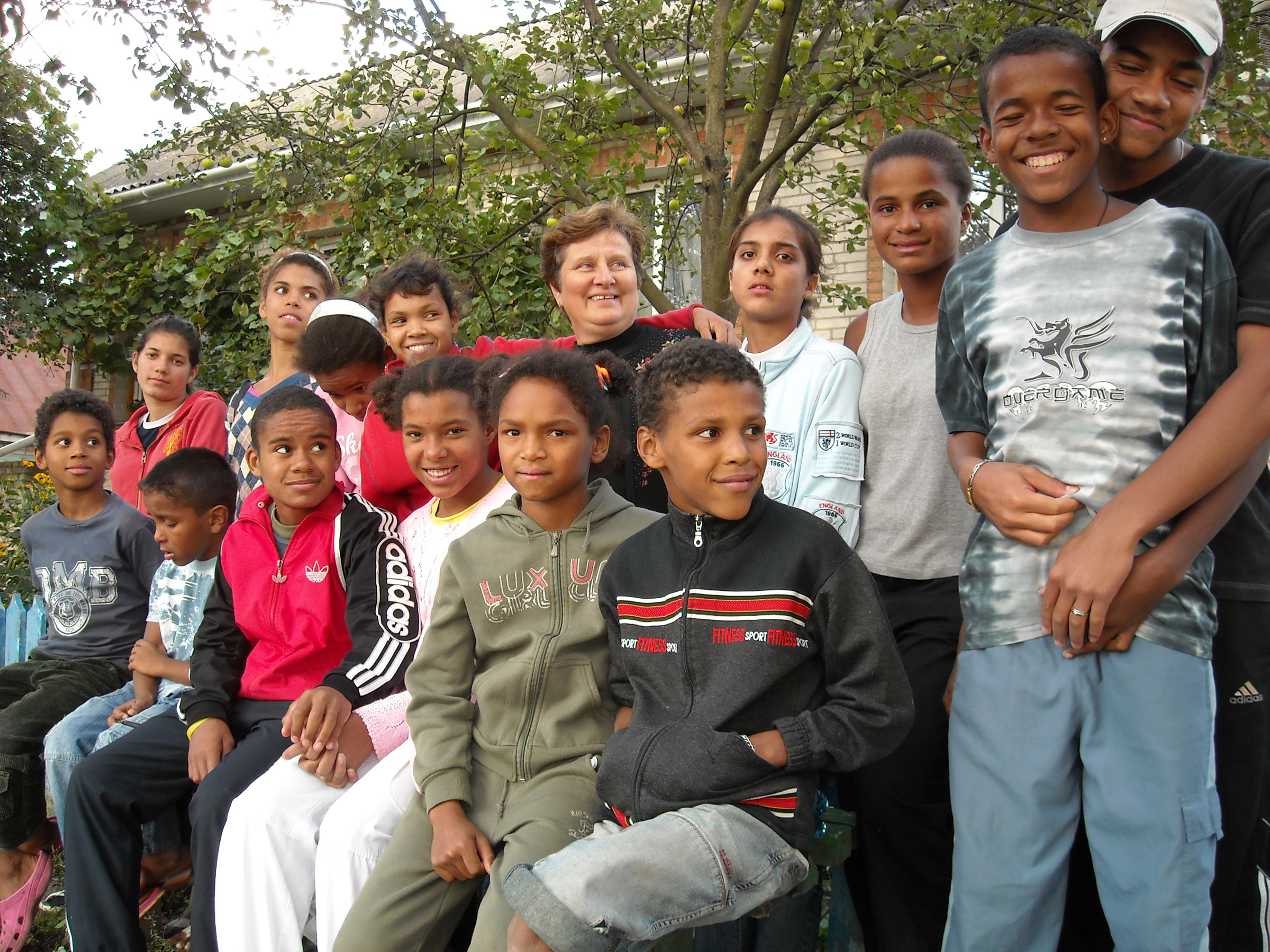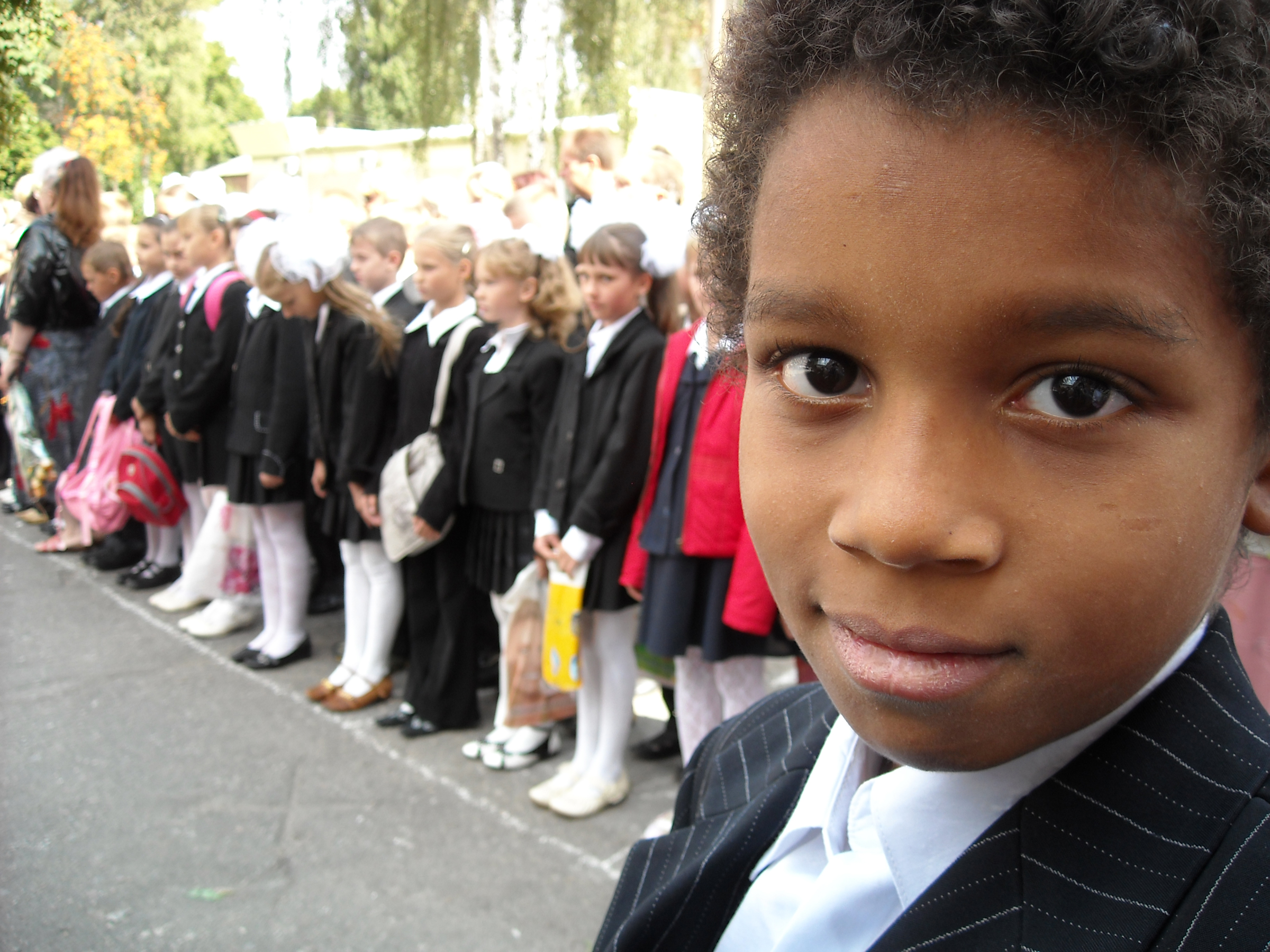Family Portrait in Black and White [Tanasse Review]Posted in Articles, Book/Video Reviews, Europe, Media Archive, Social Work on 2012-10-17 16:52Z by Steven |
Family Portrait in Black and White [Tanasse Review]
Educational Media Review Online
2012-09-24
Distributed by Interfilm Productions Inc., 304-1515 West Hastings St., Vancouver, BC V6G 3G6, Canada; 604-638-8920
Produced by Boris Ivanov
Directed by Julia Ivanova
DVD, color, 85 min. and 52 min. versions
Sr. High-General Adult
Adoption, Adolescence, Children, Child Development, Parenting, Area Studies, European Studies, Ethnic Studies, Social Work, African Studies
Gisèle Tanasse, Operations Supervisor Moffitt Library
University of California, Berkeley
Family Portrait in Black and White presents an intimate look into the daily challenges facing Ukranian Olga Nenya, half Stalanist dictator, half motherly saint. Olga cares for her brood of 16 foster children, mostly children of mixed-race abandoned by their white mothers, with an iron hand in a very modest home without a toilet or running water. Ever the task master, the children’s free time is filled with various domestic and agricultural chores, tending the vegetable garden, feeding goats, cleaning house, cooking and doing schoolwork. We are also privy, though, to very tender moments, including Olga comforting and caressing her children, a sister happily sharing her modest bowl of berries with 11 of her siblings and Olga’s anger and fear of losing her children when a herd of government inspectors come, giving her a truly bizarre verbal lashing over the use of plastic plates. This home-life stands in stark contrast with the racist, xenophobic remarks we hear from locals and neighbors, who at best, feel a superior pity towards the children, but more typically would seem driven to intimidate and possibly cause them physical harm. Even Olga’s adopted children look down on African students they pass in the street, using racial epithets and making horrific comments that the students merely wish to seduce white Ukrainian women. It seems, however, that any pride or air of superiority that Olga instills in the children is less a commentary on the shortcomings of the fathers, and more of a reflection of the value that Olga places on her children as assets to their country—the Ukraine—cannot afford, according to Olga, to lose such jewels as her children…
Read the entire review here.


